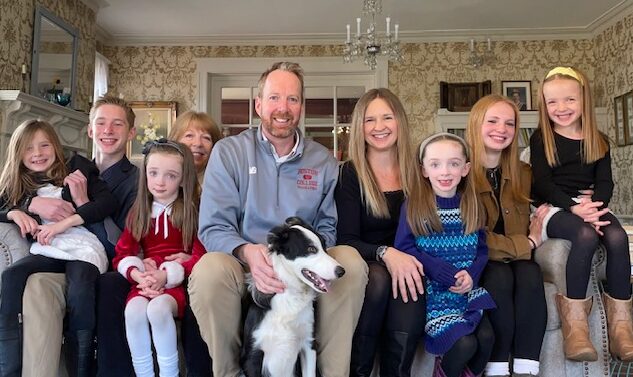
Matt Kerr and Jill Snyder Kerr ('00, MAEd '01) overflow their couch with from left, Eloise, 8, on the lap of brother James, 14; Matt's mother, Evelyn Kerr, in back; Rose, 6, in red; border collie Archie; Violet, 6; Madeline, 16; and Jessamine, 6. Top photo, the triplets, in outfits that match the color of the flower for which each is named: Jessamine in yellow, Rose in pink and Violet in blue. Photos courtesy of Jill Kerr.
Jill Snyder Kerr (’00, MAEd ’01) realized in her first year as a scholarship track and field athlete at Wake Forest that she was pushing too hard and wasn’t getting enough rest or sleep. After an injury and surgery, she re-injured herself.
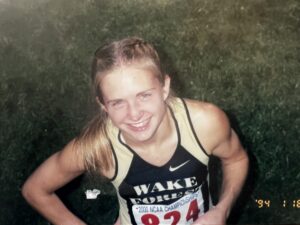
Kerr at Wake Forest
But she recalibrated and rebalanced her workouts. She ate better. She got more sleep. She eventually graduated with bachelor’s and master’s degrees — as a four-time ACC champion, five-time All-American and 1998 Wake Forest Scholar Athlete of the Year. She and her husband, Matt Kerr, were both assistant coaches in track & field and cross country at Wake Forest for several years.
All that was a stroll through the Forest compared with the sleep deprivation that awaited Jill as a mother.
On Valentine’s Day 2017, she and Matt welcomed triplet girls, instantly expanding their family from three children to six.
Sleep became the most prized luxury ever.
Even trying to read a book on how to get babies to go back to sleep in the middle of the night was beyond reach. “You’re so exhausted you can’t finish the book,” she says, laughing, though it wasn’t funny at the time. It was close to three years — precious, but exhausting — before she felt like she had a handle on juggling it all. “It was pretty intense.”
Family, church members and friends rallied to help, and the Kerrs figured out how to manage the newborns, including one who required serious surgery, along with a 2-year-old girl, a 7-year-old boy and a 9-year-old girl. Matt had to return to work as head coach of men’s cross country and track & field at Boston College just three weeks after the births. Jill eventually would continue to work as a teacher and a high school track and cross country coach while hosting a string of international exchange students, two at a time, in their home for several years.
Managing Editor Carol L. Hanner talked with Jill Kerr to hear about her journey and her tips and inspiration for all mothers on Mother’s Day 2023 (as we offer gratitude for the sleeplessness all our mothers endured for us.) Excerpts have been edited for clarity and brevity.
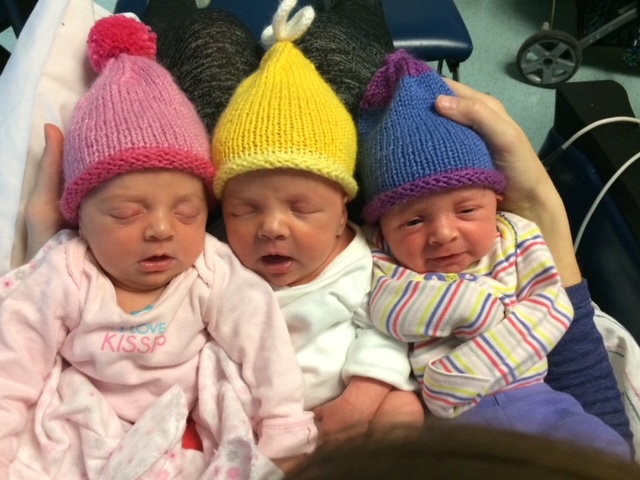
How did you find out you were pregnant with triplets?
We were really excited to have a fourth, and we thought that seemed like a nice round number. So the pregnancywas not a surprise, but the number of babies was.
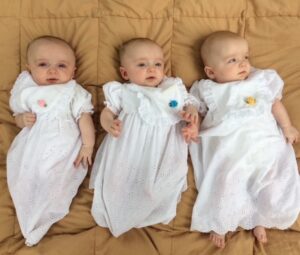
This was a DNA surprise. They call it spontaneous triplets. It was the shock of my life. Multiples do run in my family, so I had wondered with my first couple of pregnancies if maybe we would have twins. Then I forgot about it, honestly, in the busyness of life.
I went in for an ultrasound when I was eight weeks along, and I was just lying on the table taking a nap because I was so, so tired. I saw the heartbeat pop up on the monitor. I took a deep breath, and I was, like, “Oh, OK, there’s the heartbeat. All is well. I’m going to close my eyes while she finishes up.”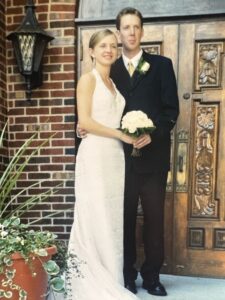
(The sonographer) got really quiet, and she said, “Do you want me to tell you about your pregnancy?” My eyes opened, and I said, “Well, isn’t it a little early to know if it’s a boy or a girl?” And she said, “You’ll see that there are three heartbeats, three babies. You’re carrying triplets.”
I was just completely shocked, dumbfounded. I started crying and laughing.
How did Matt take the news?
He was out of town. And, ironically, he was on the same trip (he had been on) exactly a year earlier (when he got the call that) that his father passed away unexpectedly. I was really nervous about surprising him because I knew he was surrounded by a lot of emotions with having been there when he received the news about his dad. I told him, and he was awesome. He said, “It’s great, and everything’s going to be different now.” And he was right. It was. Everything was different.
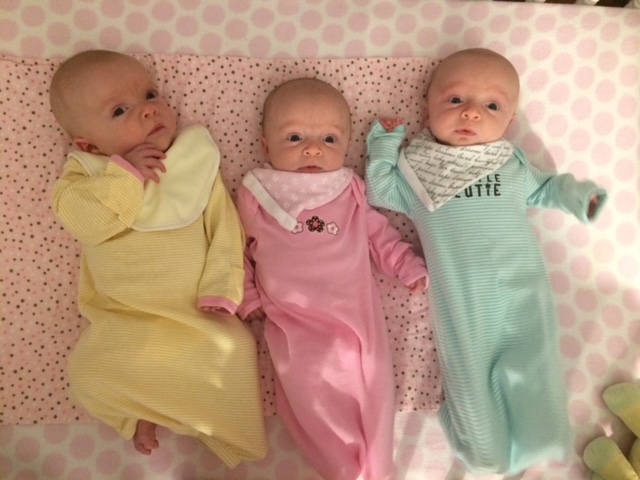
How was the pregnancy?
As the pregnancy ramped up and got really quite difficult, I was just so grateful for my background as an athlete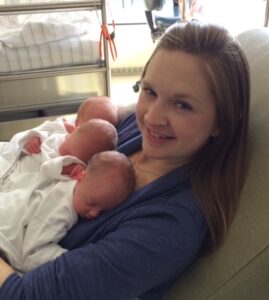 because it was like eight months of a long interval session. It was the most pain I’ve ever been in in my life. I did reach a point in the last 2½ months where I couldn’t even go upstairs without having a real contraction, so I couldn’t even walk around the block.
because it was like eight months of a long interval session. It was the most pain I’ve ever been in in my life. I did reach a point in the last 2½ months where I couldn’t even go upstairs without having a real contraction, so I couldn’t even walk around the block.
I just kept my eyes on the prize, which was getting them home healthy and safe. I just took it one hour at a time.
How big were the triplets at birth?
They were 4 pounds, 11 ounces; 4 pounds, 12 ounces; and 6 pounds, 8 ounces. (The two smaller girls, Rose and Violet, are identical twins. Jessamine is the fraternal triplet.)
Oh my gosh. Were they healthy?
Jess was born with a benign tumor in her heart, … discovered when she was two weeks old. (A specialist at Boston Children’s Hospital advised watching her closely at home. The tumor, the size of a golf ball, was removed when she was 7½ months old, and she has thrived since.)
Violet was in the NICU (neonatal intensive care unit) for two weeks, Rose for 2½ and Jess a little less than a month.
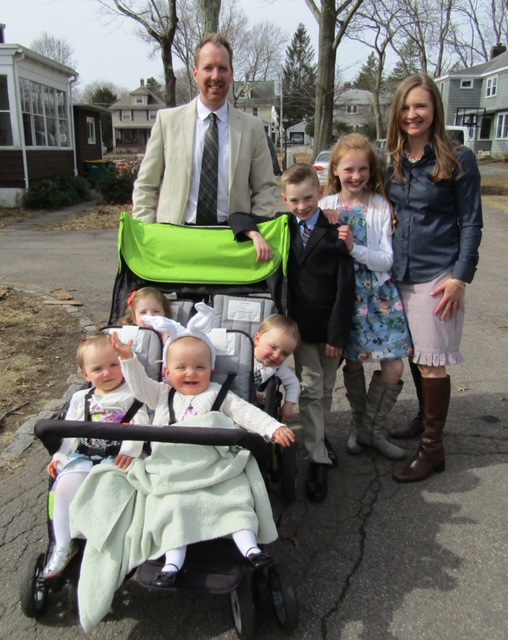
How did your athletic background prepare you besides making you strong?
I relied a lot on my faith during that time, and I realized that I had really ambitious goals as an athlete. I wanted to be a national champion. I wanted to make the Olympic team, and I wasn’t able to realize those goals. I was an ACC champion, and I was an all-American, but I left my running career feeling like there were things that I didn’t accomplish that I had dreamed that I would. And then I realized, after the babies arrived safely, that this was the Olympics that God had in mind for me. And it was so much better than the one that I had dreamed about.
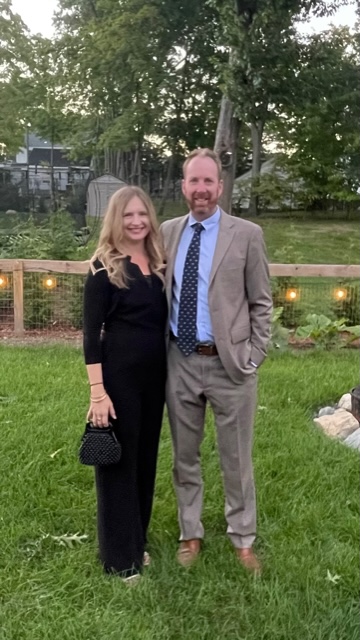
What things did you do to help manage so many babies?
In the beginning, organization was our saving grace, and I am pretty organized by nature. It also gave me just a little bit of a sense of control.
Color coding was huge. That was so helpful because when you’re tired — we were exhausted for a year or more — you don’t have to stop and read a label. They each had their own color. (We coded everything), bottles, clothes, pacifiers. When you’re in a baby fog, it’s helpful to know whose is whose.
We didn’t have any permanent help, and we didn’t have any family close by (though parents, aunts and uncles came for visits in the early months). We did have some friends who helped us organize a spreadsheet of volunteer helpers. The color coding was helpful for them. We had a big whiteboard that I used to keep track of all the feedings.
I wanted to make the Olympic team, and I wasn’t able to realize those goals. … I realized, after the babies arrived safely, that this was the Olympics that God had in mind for me. And it was so much better than the one that I had dreamed about.
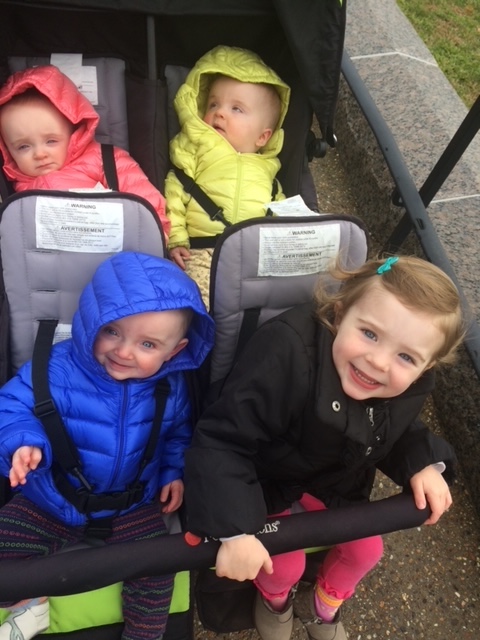
How did you handle the care for the three older children?
I just tried every day to make sure that I spent time, even if it was just a few minutes, with each child, a daily touchpoint.
Did people babysit for them?
Of course. We were really independent, so we were not used to asking people for help. A friend of mine while I was still pregnant, she said, “Jill, we want to set up a meal train for you because you’re about to get pretty incapacitated. I think you really need to understand that you really should do this. By letting people help you, you’re helping them.”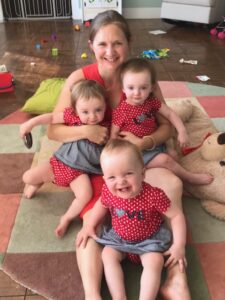
It was an uncomfortable place. But people were so generous, and we really did need the help. Often when people would leave our house after helping for a shift, they would say, “Thank you, thank you so much.” So that was a growth opportunity there.
We had some friends who slept over several times. I was a teacher up until the time when I delivered, and some parents and teachers and friends paid for several nights of … night nurses, these angels that come in and watch your babies so you can sleep. But the best part is they’re like sleep coaches.
What did they teach you to do?
In the middle of the night, and it’s been weeks and weeks or months and months not sleeping well, you just want to do whatever you can to soothe them to get back to sleep. So you go to breastfeeding or to the bottle, and then the babies, they’re so smart, they figure you’ll pick them up, you know? (The nurse said), “Try this before you go to pick them up. Try soothing them in this way or soothing them while they’re laying down.” Oh my gosh, it was just a game-changer.
Some parents and teachers and friends paid for several nights of … night nurses, these angels that come in and watch your babies so you can sleep. But the best part is they’re like sleep coaches.
What advice do you have for mothers and fathers?
Many hands make light work. Figure out what each person is good at and then give them that job around the house. Our (14-year-old) son (James) is so good at fixing things, so he is our techie fixer guy. (Our 16-year-old daughter) Madeline is incredible in the kitchen, so she helps out with cooking and baking.
No. 2, I would say prioritize family meals, even if it’s 15 minutes or if it’s not very pretty. It’s still really worthwhile to all sit down at the table together.
The third and the most important one is to have faith. People have different faiths, but having that perspective that there’s a plan for your life and that everybody’s called to do something important and unique, that’s important for families. … You need something that’s going to keep you together when the times get hard.
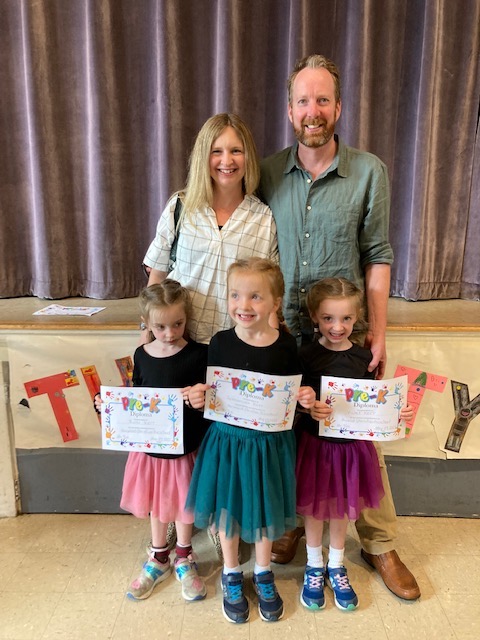
At age 6, do the girls understand that they’re triplets and that two of them are identical?
In the last year, they’ve started to understand that. Because we literally mix them up all the time. I mean, I’m their mother, and I have to sit down and look at them if they’re not talking. If they’re talking, I can tell right away. They have different voices. Even though they all wear uniforms to their school, we put little bows in their hair so people can tell them apart.
They’re very proud of the fact that they’re triplets. When they meet somebody, they’ll often say, “I’m Jess and I’m a triplet.” Then Rose and Violet will go, “And we’re twins.” So far, it doesn’t seem like there are any big feelings about that one way or the other.
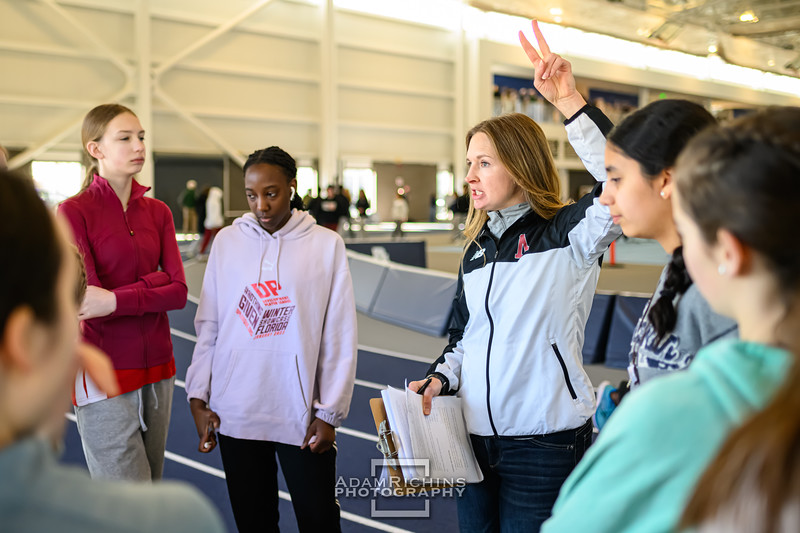
Coach Kerr in Massachusetts
When did you go back to work (teaching high school students)?
When (the triplets) were 1½, I returned to the classroom teaching half-time high school English. It was what we needed to do financially. … I loved it, loved British literature. But I ultimately decided that spring that I needed to step away. (Matt stayed home in the mornings and started work later, and she came home in the afternoon but also had to grade English papers.)
I was doing the best job I could do parenting and … teaching, and I was not taking good care of myself. I realized it was unsustainable.
So we did some other things. I hosted international students for the next few years (from Spain, Mexico, Austria, China, Chile and France.) It was a really valuable experience.
You had been an assistant coach at Wake Forest after graduation and also coached high school track and field in Massachusetts.
I coached part-time, three seasons, cross country, indoor track and outdoor track (at a high school in Massachusetts) Then a (teaching) job came available at the school that my four youngest go to, so I am now testing the waters in elementary school. (She previously taught grades six through 12.) But it’s an incredible blessing to be able to be close to them at school.
I’m continuing to coach as well (at middle and high school). It does take a delicate balancing act.
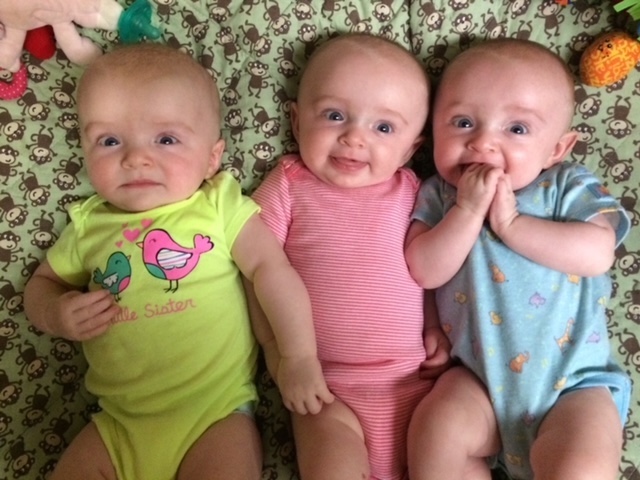
Madeline has also become a runner. (She was named a 2019-20 All-Star in the New England Prep School Track Association (NEPSTA) in cross country.)
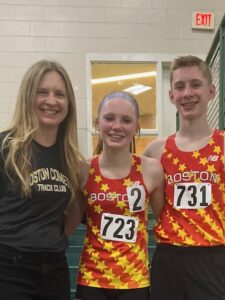
Jill, Madeline and James Kerr
I got back into coaching when my daughter started in sixth grade and her school needed a track coach. I’ve been coaching her now for four years. It’s been a lot of fun. It’s funny because my husband was quite a successful athlete as well. (Matt Kerr was a four-time SEC Individual Champion, a six-time All-American and a two-time individual NCAA Champion in the Steeplechase, running at the University of Arkansas.)
So far (Madeline and James) both do really seem to like it. We believe in the importance of doing other sports and activities as well, also having a chance to explore the arts. We try to provide balance for them.
Last week, my husband and I went out for a run, and our son and daughter went with us. … Now Matt and I are sucking wind, trying to keep up with the young ones. But it’s really great to be able to do that together as a family.
How far do you run now? (Her championships were in the 1,500 meters, the mile and the distance medley relay, though she also ran cross country and other distances.)
I don’t go very far anymore, usually three miles on a good day. … We call it keeping the pilot light on. I go for a run, and then I come back with a clear perspective.
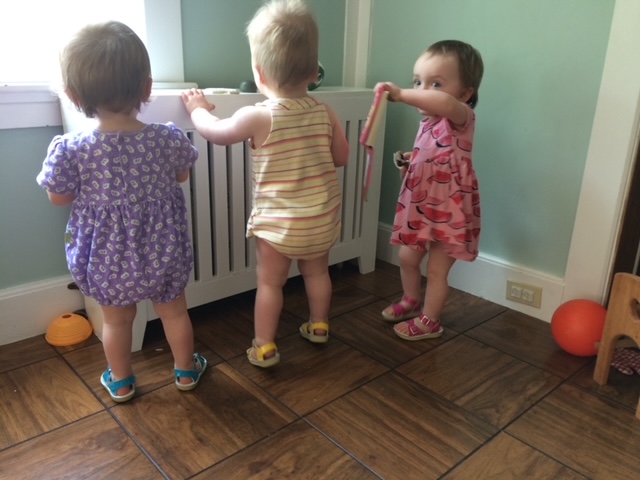
"New walkers are crazy," Jill Kerr says. "They just walk everywhere. Then they start running places, and they don't know what they're doing. So it takes a lot of work to contain them and to keep them safe."
What have been the highlight periods of the triplets?
The newborn part was a really special time. (After) really, really uncomfortable pregnancies, it was just so great when they’re out and you’re getting to meet them. That was very tiring, but it was awesome.
I’d say 4 years old is really fun because they’re just filled with so much wonder and curiosity. They reached a level of independence that was really liberating for me. Like,”OK, you can buckle yourself in now, and you can get out of the van yourself.”
And then right now, 6 years old for the triplets and 8 years old for Eloise, we have days that are like magical days because they play together really well and they’re just very imaginative.
We live pretty simply, pretty frugally, because there isn’t a lot of extra money. But I wouldn’t have it any other way.
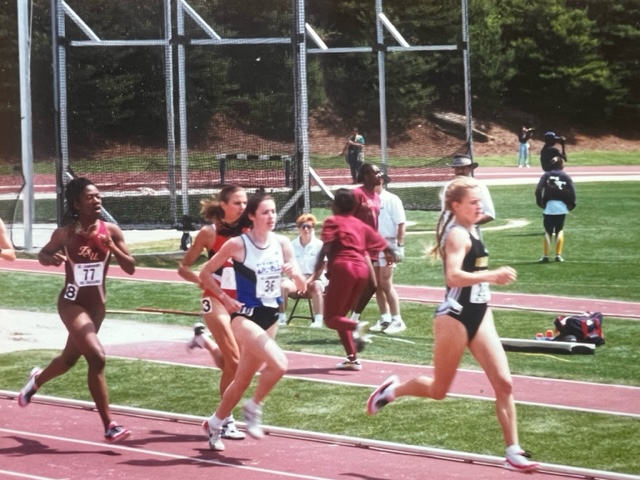
Jill Kerr out in front as a student-athlete
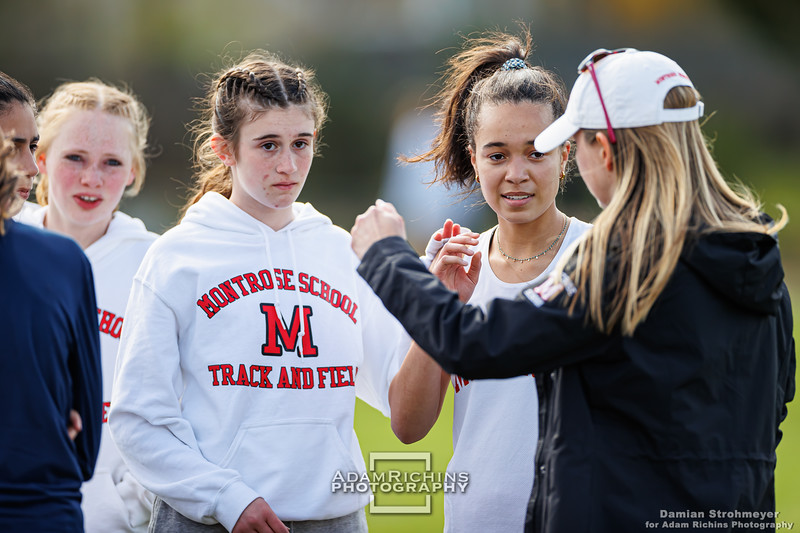
Jill coaching, with Madeline, her daughter, behind her two teammates.


